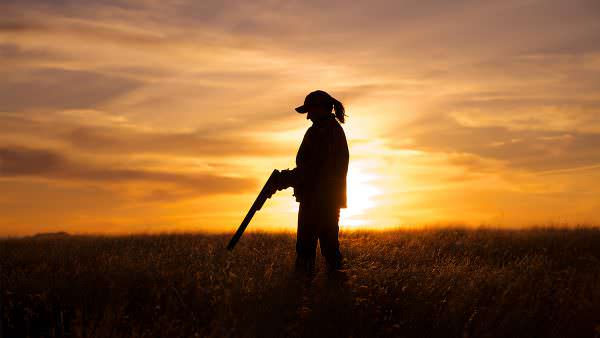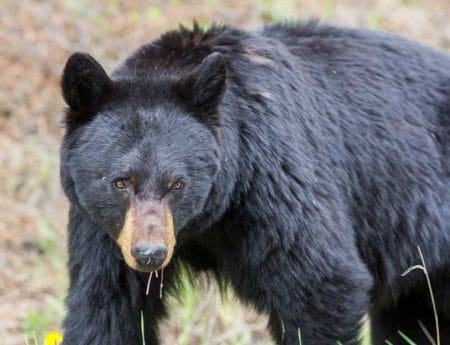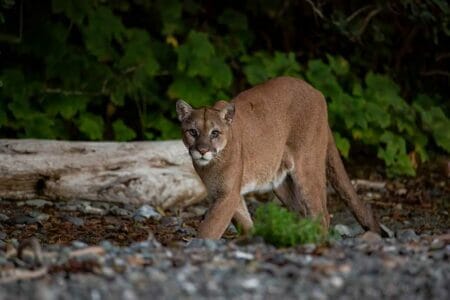
Denver, CO – A bill that sought to downgrade hunting, trapping, and fishing from their long-standing status as the primary methods of wildlife management in Colorado was decisively defeated in the House Agriculture, Water & Natural Resources Committee.
House Bill 1258, introduced by Democratic Representatives Tammy Story and Elizabeth Velasco, proposed changing state law to say that hunting, trapping, and fishing “may” rather than “shall” be used as management tools, emphasizing “the best available wildlife and ecological science” instead. However, after nearly four hours of testimony, the bill failed with bipartisan opposition on a 10-3 vote.
Opposition Calls the Bill an Attack on Hunting
Opponents viewed the bill as an attempt to undermine Colorado’s hunting traditions, which provide critical funding for conservation efforts. The bill’s failure marks the second major defeat for anti-hunting activists in recent months, following the rejection of Proposition 127, which aimed to ban hunting of mountain lions, bobcats, and lynx.
Former state senator and retired wildlife officer Perry Will called HB 1258 “an all-out attack on hunting,” according to Colorado Politics. Critics argued that the bill misrepresented the role of hunting in wildlife management, which is a core principle of the North American Model of Wildlife Conservation.
Gaspar Perricone, chair of the Colorado Wildlife Conservation Project, said, “The bill suggests CPW is currently and intentionally dismissing the application of best available science,” adding that CPW employs “hundreds of scientists and wildlife biologists” to make data-driven decisions.
Opponents also pointed out that hunting and fishing licenses generate about $100 million annually, which funds conservation programs for both hunted and non-hunted species. During testimony, CPW Executive Director Dan Gibbs acknowledged that apex predators such as wolves could reduce elk and deer herds, potentially leading to fewer hunting licenses being issued and impacting conservation funding.
Bill Sponsors Defend the Proposal
Bill sponsors insisted that the measure was not meant to eliminate hunting but to give wildlife officials more flexibility. They argued that wildlife management decisions should be based on modern science rather than being dictated by a statutory requirement to prioritize hunting, trapping, and fishing.
Rep. Story said, “Our responsibility is to ensure that all [wildlife] are effectively managed and safeguarded for future generations,” referencing factors such as climate change and biodiversity loss. She described the bill as a way to “modernize” state law and clarify that hunting, trapping, and fishing would remain valuable tools but wouldn’t be the only methods considered.
However, the bill’s sponsors struggled to identify a specific problem it was meant to address. When asked by committee members, Story did not directly answer, while Velasco argued the bill was meant to update “outdated provisions” and ensure transparency in CPW’s work.
Who Decides What Science is ‘Best’?
A key concern raised by opponents was that the bill could inject politics into wildlife management by shifting decision-making power from CPW biologists to politically appointed commissioners.
Committee Chair Rep. Karen McCormick, D-Longmont, said the bill was “potentially problematic” because it failed to define what science was missing from CPW’s work. She expressed concern about giving the CPW Commission—the majority of whom are political appointees—greater authority over scientific decision-making.
Perricone warned that the bill could expose CPW to frivolous lawsuits, citing a similar situation in Washington State, where changing wildlife management language led to years of unresolved legal disputes.
Hunting and Conservation: An Intertwined Legacy
Colorado’s wildlife management framework is built on the North American Model of Wildlife Conservation, which recognizes regulated hunting as a key tool for maintaining healthy ecosystems. The model successfully restored species like elk, bighorn sheep, and wild turkeys while funding habitat conservation.
The Theodore Roosevelt Conservation Partnership pointed out that fishing, for example, is essential in managing invasive fish populations. “When a non-native fish starts to dominate a reservoir and outcompete native fish, utilizing fishing as the first line of defense” is necessary to control the population, said Liz Rose, the organization’s Colorado program manager.
Despite claims from bill supporters that hunting participation is in decline, CPW reports steady interest in big-game hunting. However, anti-hunting activists continue to push for legislative and ballot initiatives to restrict the practice, making HB 1258 likely just one battle in a larger conflict.
For now, Colorado hunters and conservationists can breathe a sigh of relief. With HB 1258 soundly defeated, hunting remains the cornerstone of wildlife management in the state—but opponents of the practice are unlikely to give up anytime soon.
On the Hunt: The History of Deer Hunting in Wisconsin ~ Book Review
‘Woke’ Wildlife Refuges? Congress Blasts Climate Priority Rule That Sidelines Hunting





scum scam, flim flam
So do the two women, Story and Veslesco belong to any anti hunting groups, animal rights groups or pro wolf groups? The real reason behind bringing more wolves, is to say the wolves eat all excessive elk, deer, so hunting is no longer needed So guess where the wolves will go will prey runs out? Just like coyotes, they will go to the cities looking for food., and you will get stupid city slickers who will put out food for the wolves as if they were stray cats. In Florida, you have misguided fools who actually feed alligators, that they… Read more »
Kolorado
I used to hunt in Colorado. Now, if I want to go deer hunting, I might manage to get some lottery points toward a license. So much for making use of hunting. I can’t keep up with the political obfuscations.
I can see it now. The Red Diaper Baby’s are slinging those Sh*t filled Diapers against the walls!
I’m surprised this nonsense was shot down so decisively.